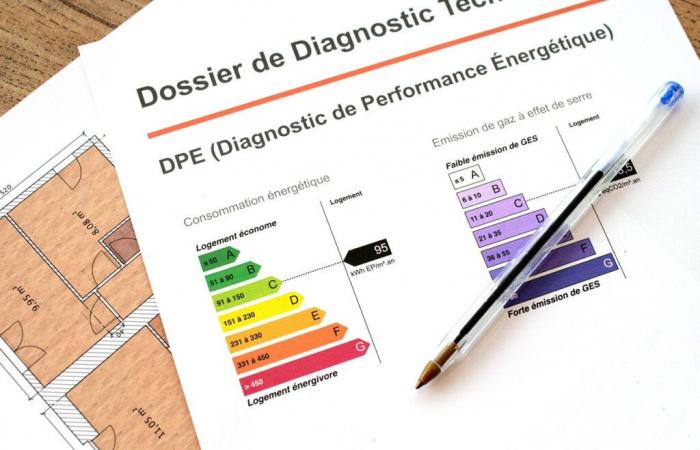MEPs propose reviewing the rules prohibiting the rental of housing rated G in the DPE. (illustration) (Etadly / Pixabay)
The terms of prohibition on renting a thermal strainer from January 1, 2025 could be revised. A proposed law wants to limit this measure to new contracts, thus sparing current leases. At the same time, tenants could demand a reduction in rent if the owner does nothing to improve the energy performance of the accommodation.
Housing rated G in the energy performance diagnosis (DPE) must be prohibited for rental from January 1, 2025. But a bill tabled in the National Assembly by deputies Bastien Marchive (Radical Party) and Inaki Echaniz (Radical Party socialist) aims to alleviate this measure, indicates
Accommodation
. Enough to offer a reprieve to certain owners of these accommodations. There are nearly 700,000 in France, including 250,000 in co-ownership.
Current leases not affected by the rental ban?
Objective of this text:
“prevent disputes relating to energy decency obligations and secure their terms of application in co-ownership”
. Concretely, this bill provides for maintaining the possibility of renting housing classified G for leases already in progress. Tenants in place on January 1, 2025 could remain in their accommodation, even if it is not renovated. The ban would only apply to new contracts.
The proposal also aims to protect owners facing technical or legal obstacles. If this text is retained, the ban on renting will not apply if the owner has “done everything to launch his work”, explained Bastien Marchive, deputy for Deux-Sèvres, at the microphone of
Franceinfo
last November 13.
A reduction in rent for thermal strainers?
If work is thus blocked by a “refusal of the general meeting of co-ownership” or if the work is in progress, the lessor will not be sanctioned. These adjustments would, however, exclude the most energy-intensive housing, which consumes more than 450 kWh per m² per year, which is already prohibited for rental.
On the tenants' side, an appeal could be opened. In the event of proven inaction by an owner to initiate renovations, a judge could reduce the amount of rent in order to compensate for excessively high energy charges.






